"Corrupt to the Core" (2008): Revisiting a Canadian Classic on Federal Government Malfeasance and What Unions Can Do About It. Analysis: Now vs. Then.
The history of Canadian unions includes a remarkable chapter when our union, PIPSC, stood resolutely to defend professionals regulating health products against political and corporate interference. This pivotal moment, spanning 1995-2008 under the Chrétien and Harper governments, is documented in meticulous detail by Dr. Shiv Chopra in his book "Corrupt to the Core: Memoirs of a Health Canada Whistleblower" (2008).
This book, created with substantial support from PIPSC, has become a foundational reference for Canadians and government professionals alike. It is available in many public libraries across Canada, including in the PIPSC National Office library, which offers copies in both official languages to members interested in this landmark case.
Dr. Chopra's account highlights the profound challenges he and his colleagues faced while performing their professional duty to protect Canadians from unsafe food and health products promoted by Big Pharma. The book sheds light on the political pressures, systemic corruption, and ethical dilemmas encountered by public servants who dared to stand against powerful corporate and government interests.
What has changed since then? (See also Appendix for alternative prentation of this analysis)
Corrupt to the Core was published in 2008. But has anything truly changed since then? Let’s examine this together.
Do we believe that Big Pharma—including companies like Pfizer, which is prominently mentioned in the book—has stopped trying to influence governments to sell their products? I can sense your skepticism already.
Or that ministers, senior government officials, and chains of command have fundamentally changed their approach? And what about the use of insubordination or the Duty of Loyalty to silence employees from exposing inconvenient truths? Has that changed?
So, what has changed since then? The shift is clear to anyone who has observed the evolution of power dynamics over the last decade.
The most significant change is the global control of messaging through the Internet, powered by AI and advanced behavioral science. These technologies are now being used to craft communications designed to elicit specific responses, suppress dissent, and obscure inconvenient truths. This shift is coupled with intensified tactics of gaslighting and threats directed at anyone who challenges these narratives. What’s more, this is happening under a highly organized framework, involving partnerships between Big Pharma, IT giants like Microsoft, Facebook, and Google, and global forums like the World Economic Forum (WEF).
This level of coordination and technological sophistication wasn’t possible in 2008. Today, it presents a much greater challenge for whistleblowers, unions, and everyday citizens.
Why Revisit This Book Now?
By revisiting this Canadian classic, we can gain a deeper understanding of these evolving tactics and their implications. The insights from "Corrupt to the Core" provide a vital foundation for recognizing patterns and identifying what can be done—by unions, professionals, and all Canadians—to counter these influences effectively.
Below, I’ve included selected quotes and excerpts from the book, along with a PDF containing additional selected pages. I invite you to read them, reflect, and share your thoughts.
Connecting the Past to the Present
To further contextualize Chopra’s findings, we can compare them to those in "Fisman’s Fraud", a book by Regina Watteel (Ph. D in statistics) that documents similar patterns of government corruption observed during the pandemic.
Do the two books describe the same underlying problem? I think you’ll find they do.
This is why I have recommended "Fisman’s Fraud" to my union executive colleagues and advocated for it to be included in the PIPSC library. Understanding these patterns is essential if we are to address the challenges of today and safeguard our future. Won’t you agree?
Appendix:
What has changed since then? (Altenative presentation of the analysis using ChatGpt)
So, what has changed?
The answer is clear to anyone who lived through both eras. One thing has evolved dramatically: Global control of messaging.
Today, Big Pharma and its partners wield unprecedented influence over public opinion through advanced tools:
AI and Behavioral Science: Crafting messages to elicit desired responses while suppressing dissent.
Coordinated Threats and Gaslighting: Discrediting and silencing those who challenge the narrative.
Tech Partnerships: Collaborating with IT giants like Microsoft, Facebook, and Google, under the umbrella of forums like the WEF, to amplify their reach and control.
These developments represent a highly organized effort to maintain power and profit, often at the expense of truth and accountability.
This is why revisiting Corrupt to the Core is so crucial. By understanding the systemic issues it reveals, we can better grasp what is happening today—and explore how unions, like PIPSC, can respond effectively.
Let’s Read and Compare
Below, I’ve included selected quotes and pages from Corrupt to the Core. A PDF with additional excerpts is also linked for reference. I encourage everyone to read them.
Then, let’s compare these insights with those in Fisman’s Fraud published in 2023 (read my interview with the author on my other Substack), which documents eerily similar patterns of government corruption during the pandemic. Do both books seem to describe the same underlying problem? You’d likely agree they do.
This is why I’ve recommended Fisman’s Fraud to my union executive colleagues and advocated for it to be added to the PIPSC library too. It’s a resource that every member should have the opportunity to access and learn from.








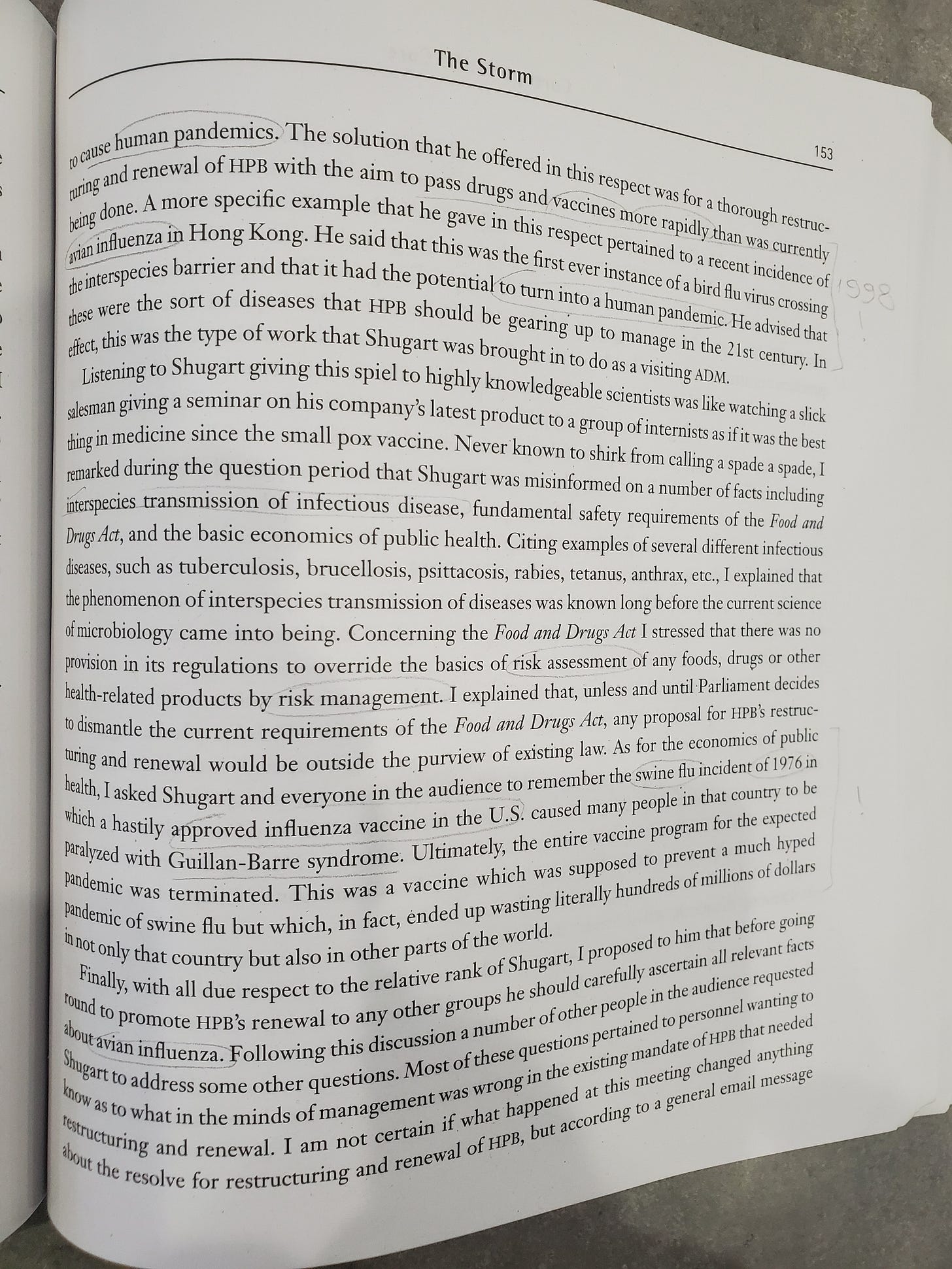
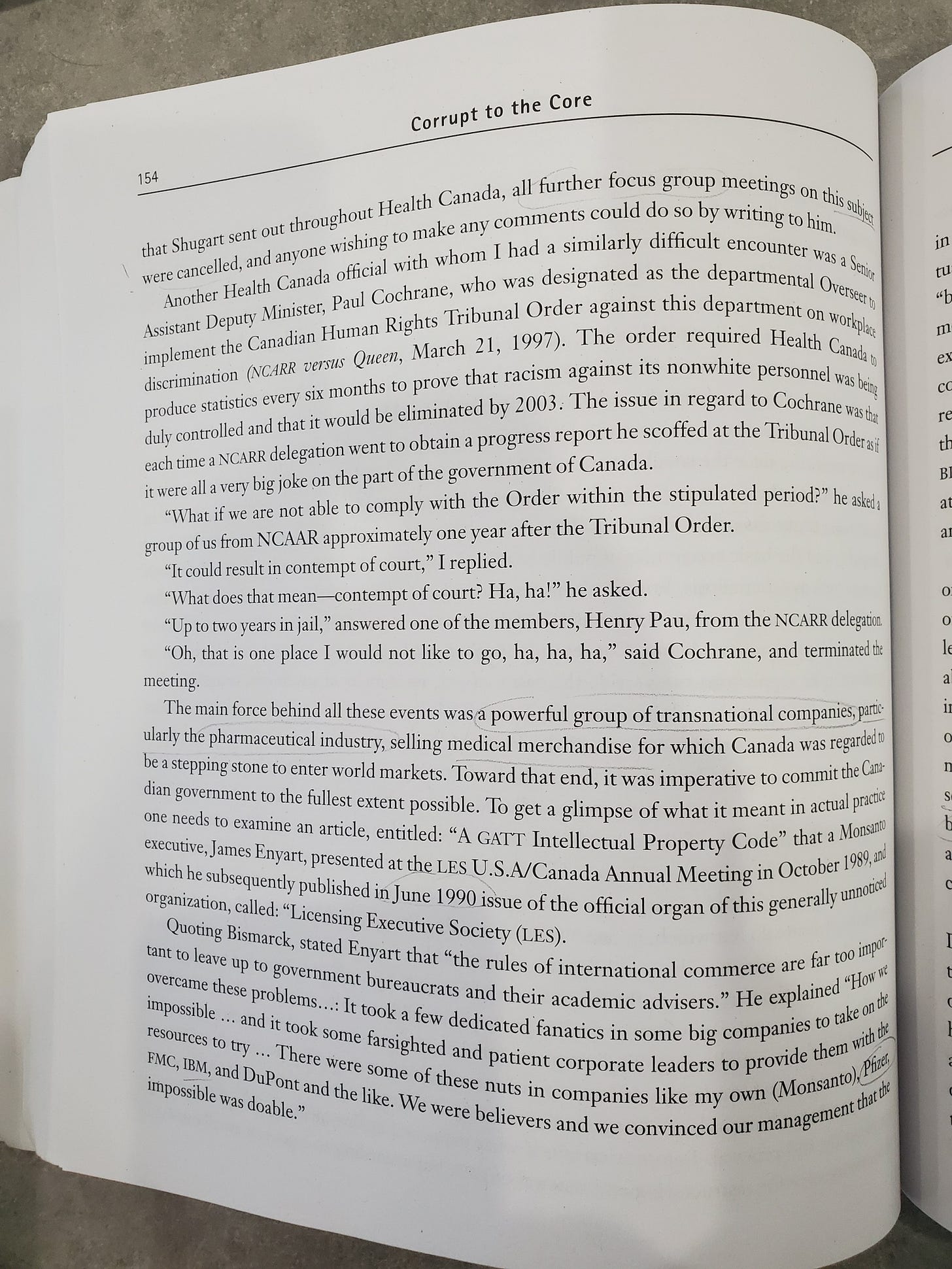
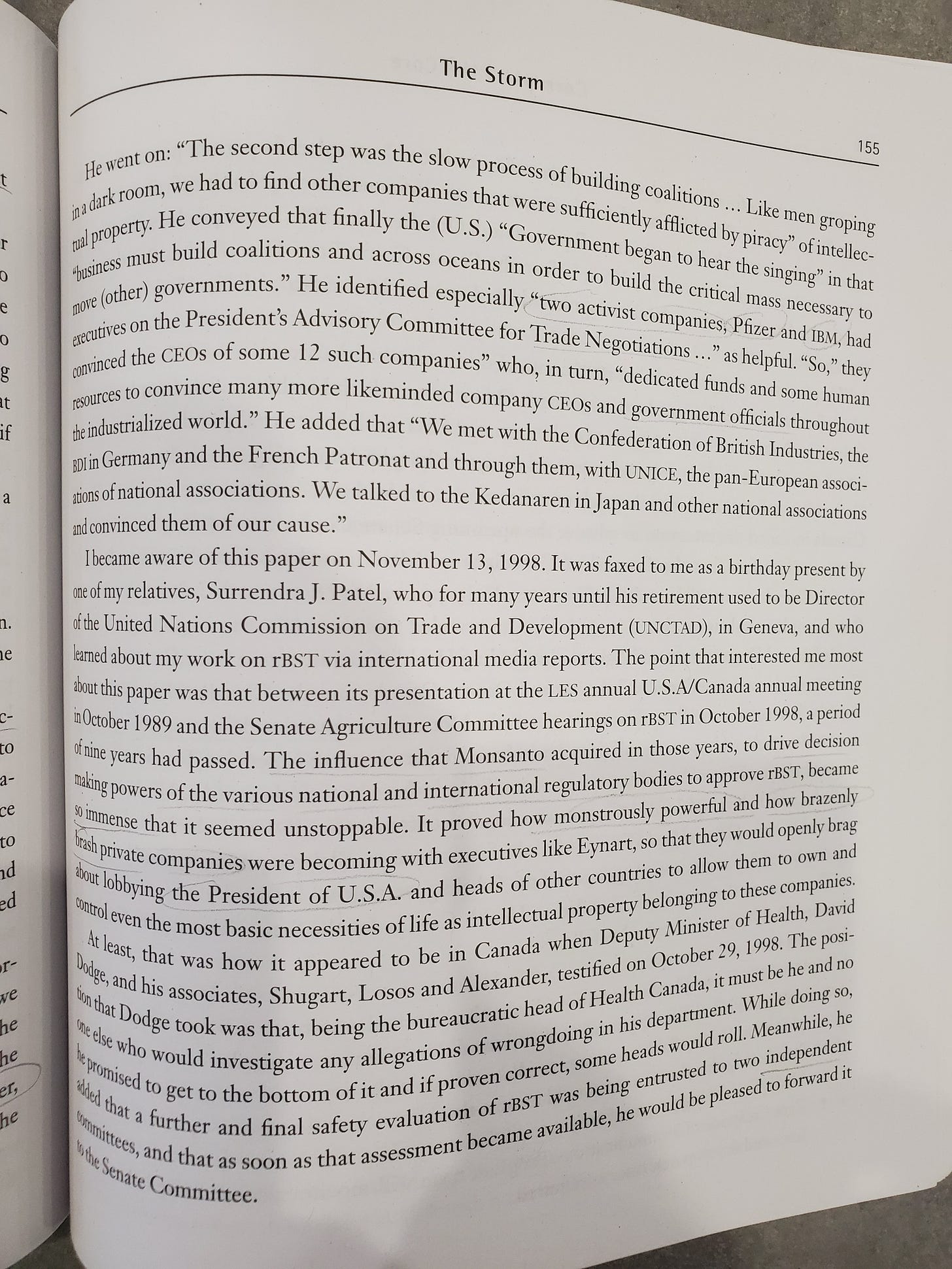
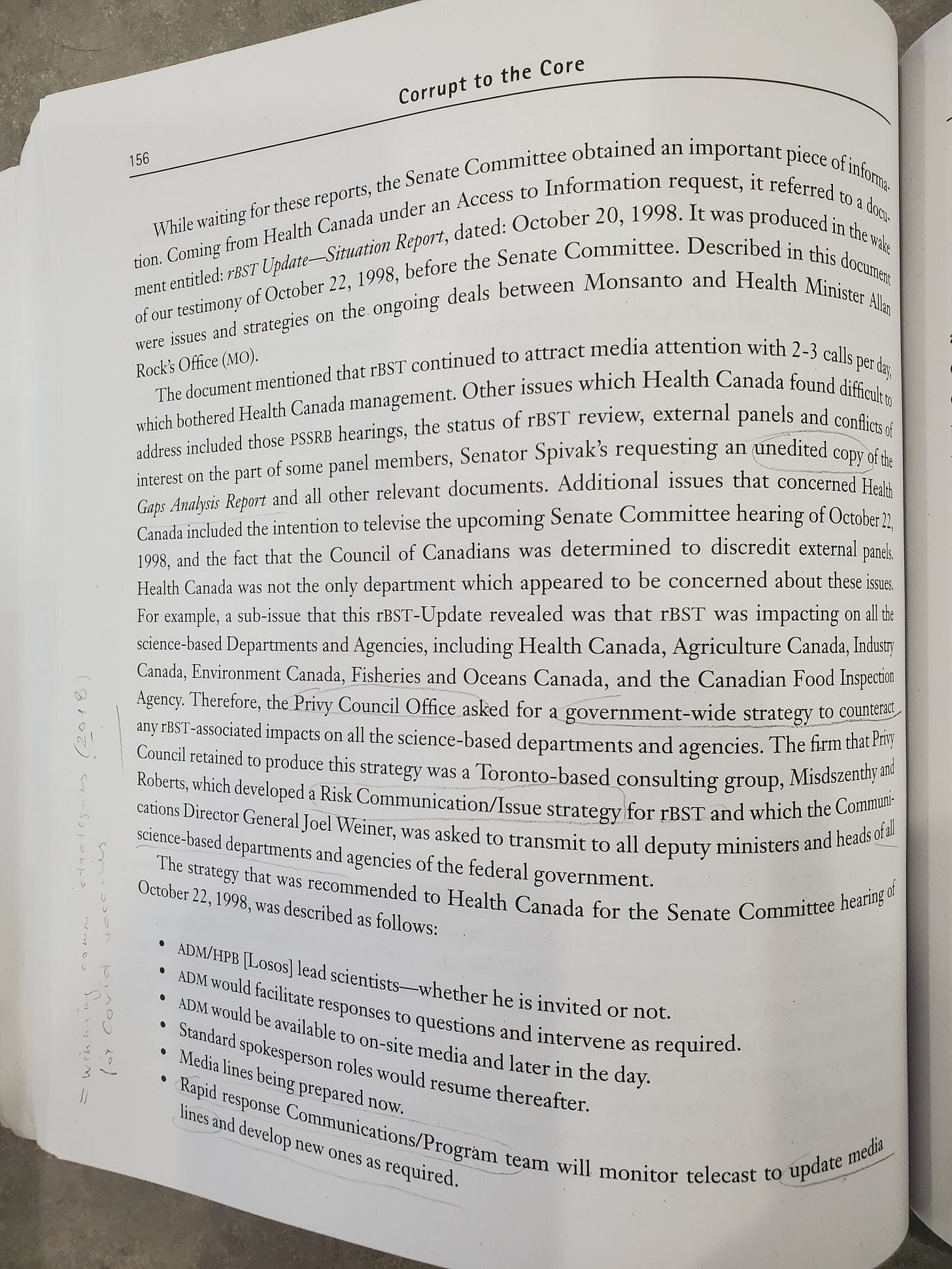
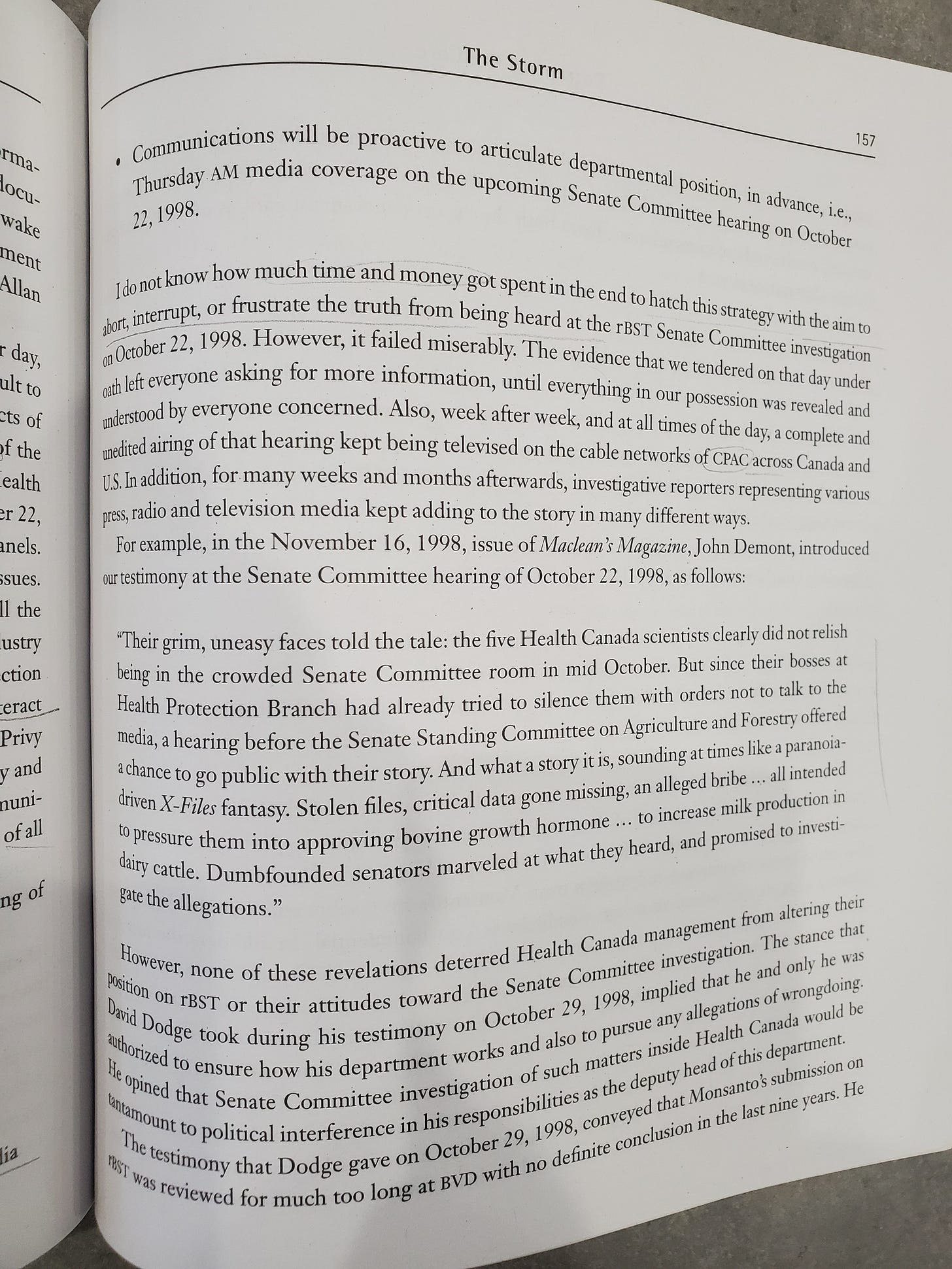
I wanted to share with everyone my thoughts on Corrupt to the Core by Dr. Shiv Chopra. This book serves as a perfect example of PIPSC’s proud history of staunchly supporting its members against the significant and often corrupt pressures from the pharmaceutical industry. Dr. Chopra’s experiences and insights into the pervasive influence of political corruption within the pharmaceutical sector clearly highlight the values PIPSC has long stood for—integrity, transparency, and unwavering support for its members, even in the face of powerful external forces.
However, it is difficult to ignore the contrast between these foundational principles and the actions of our current leadership. During the vaccine mandate, the PIPSC leadership abandoned these core values, effectively folding under the pressures of political corruption tied to the pharmaceutical industry. By doing so, they disregarded the interests and well-being of the very members they are meant to represent.
The lessons and values Dr. Chopra conveys in his book appear to have been forgotten, and this shift is deeply concerning. As a union, we are called to stand firm, not only against external pressures but also for the rights and dignity of our members.